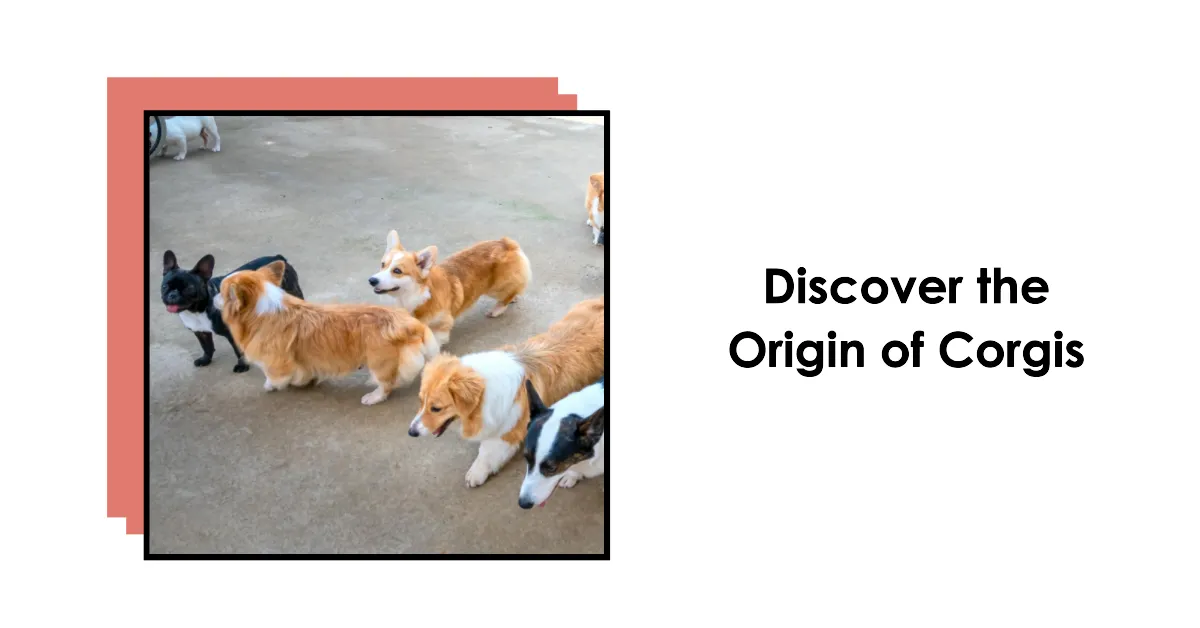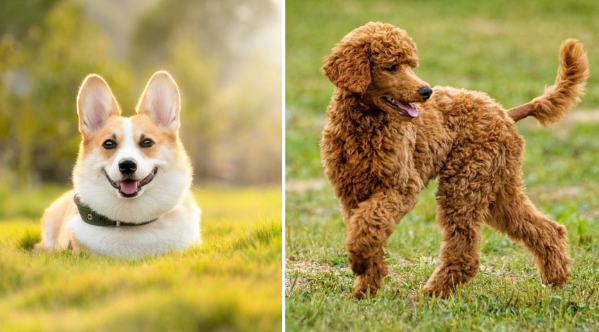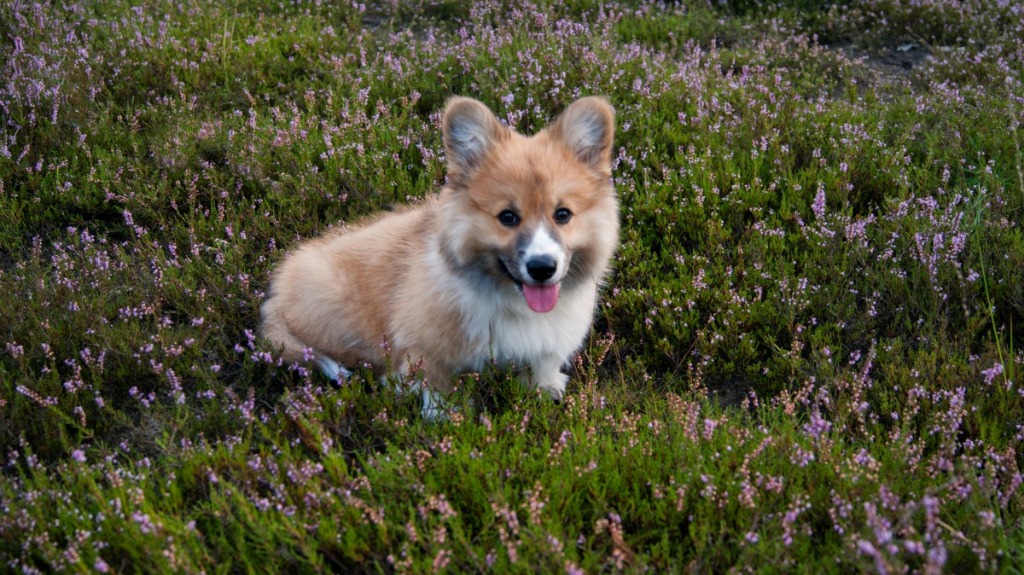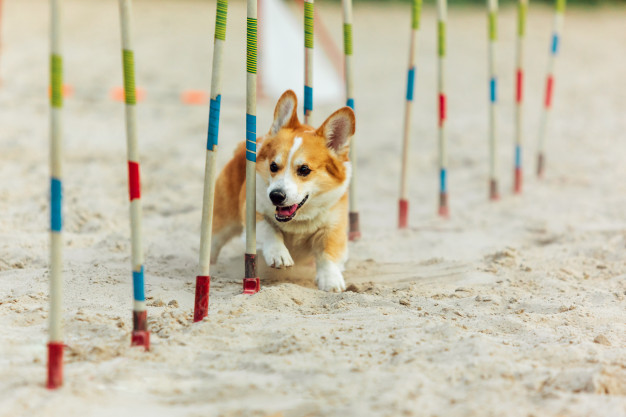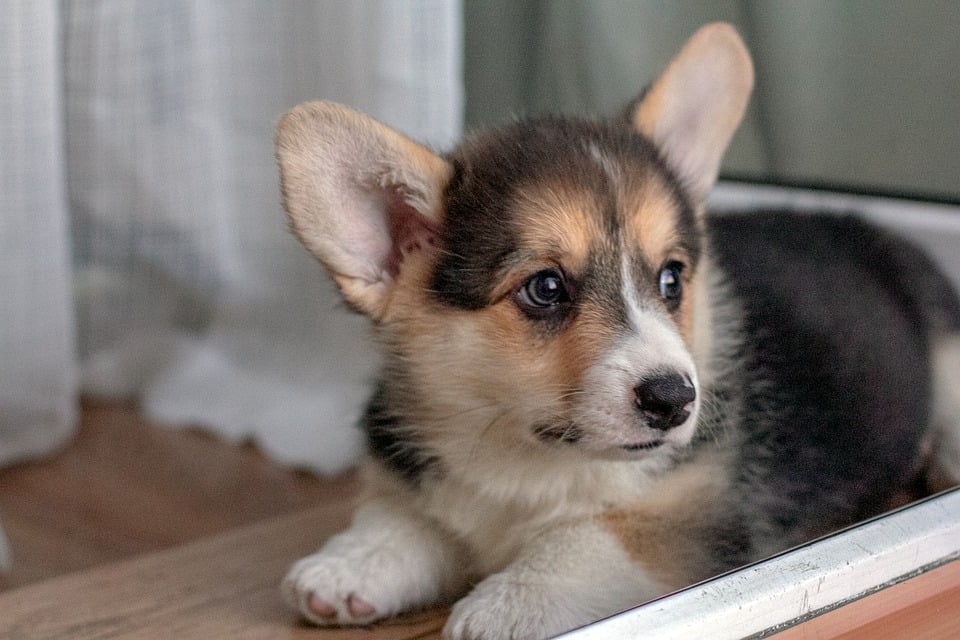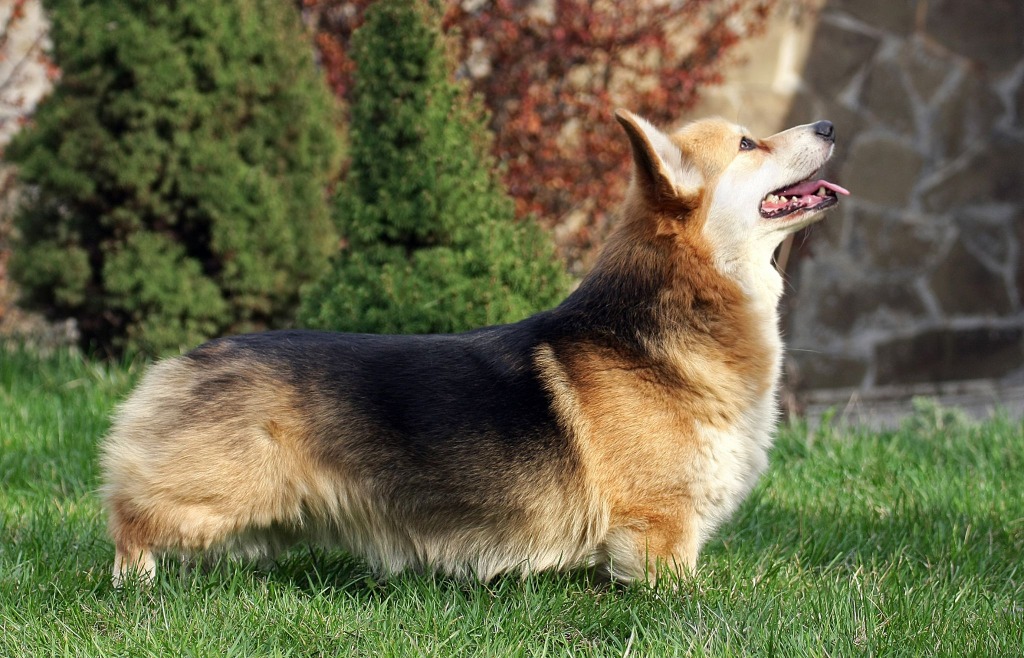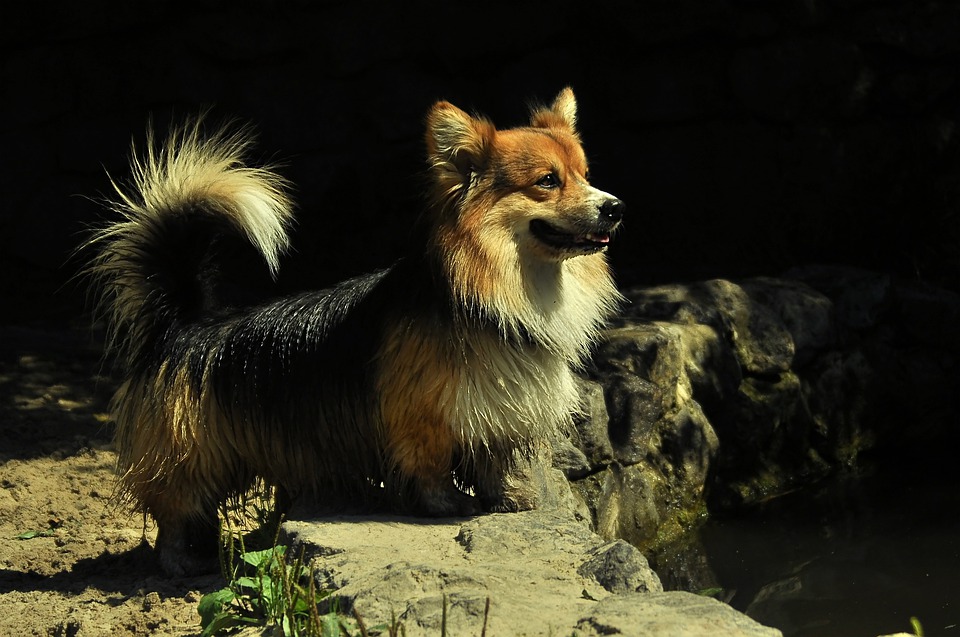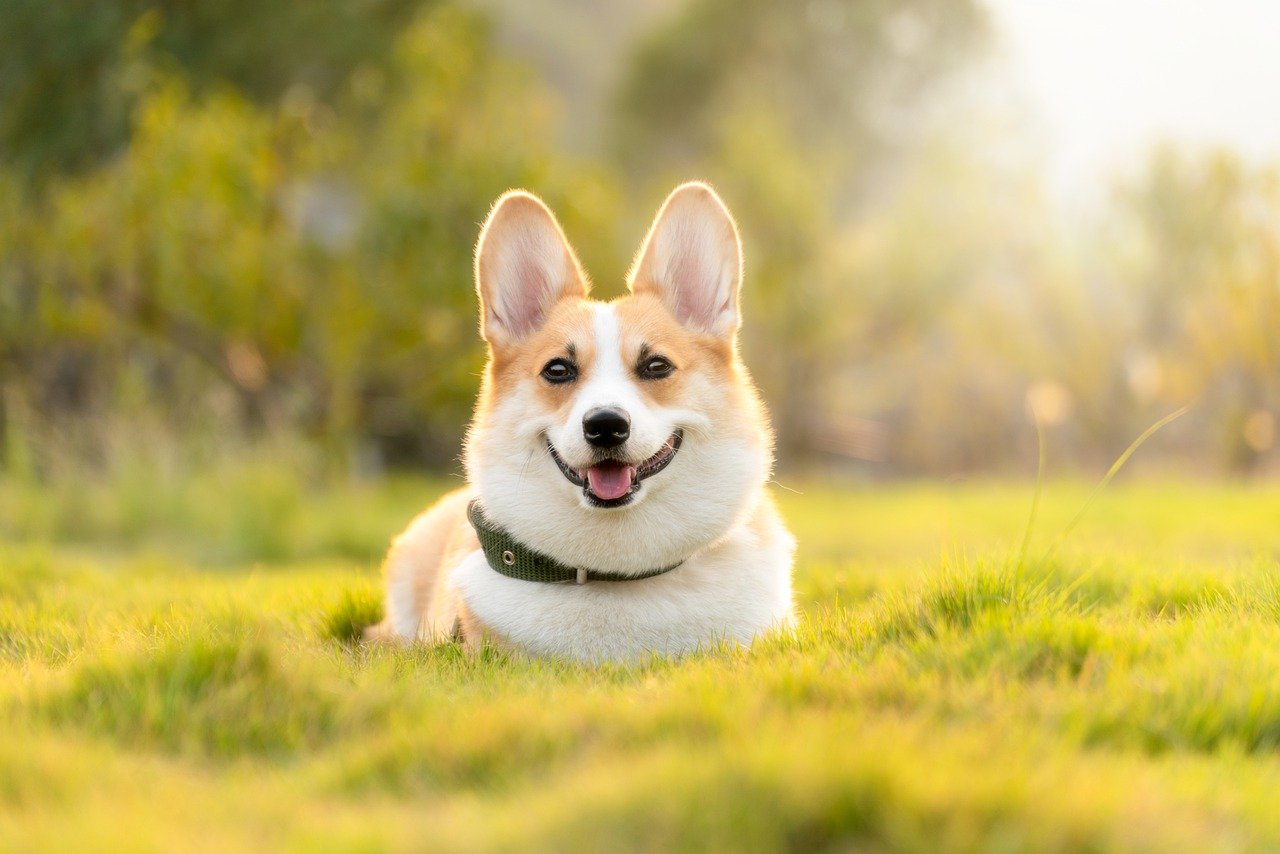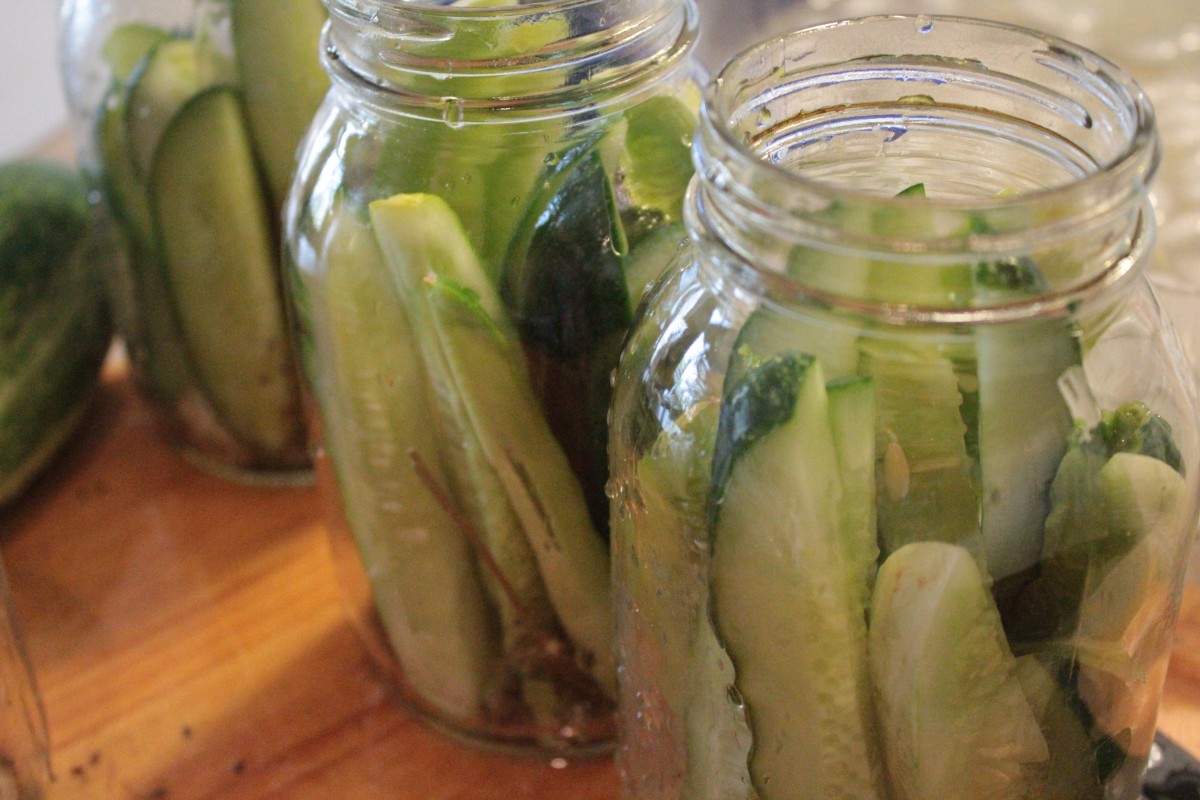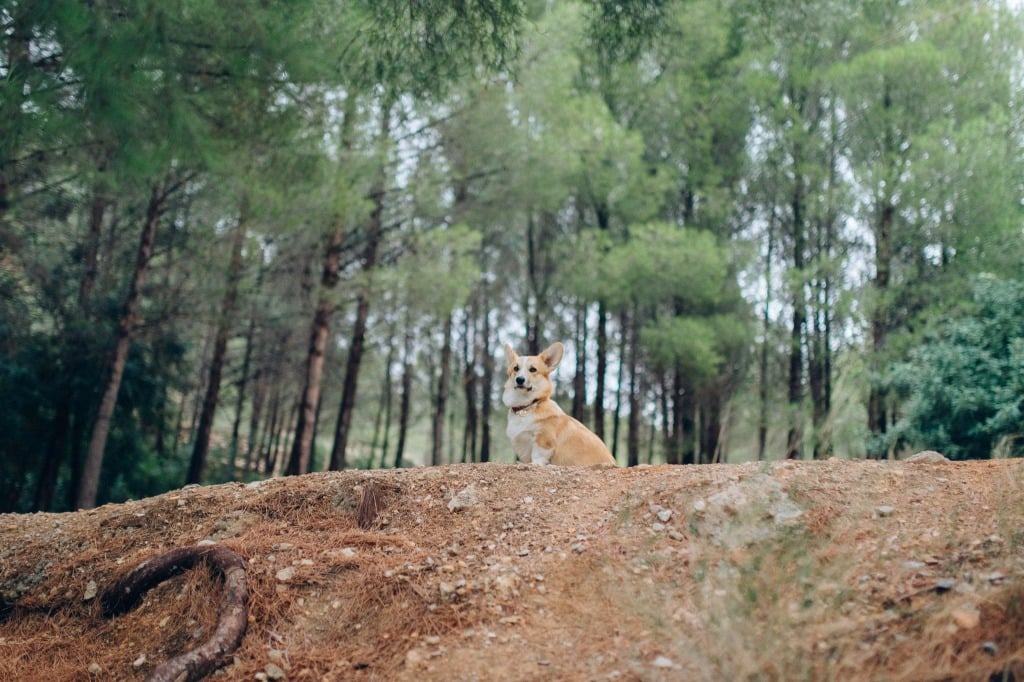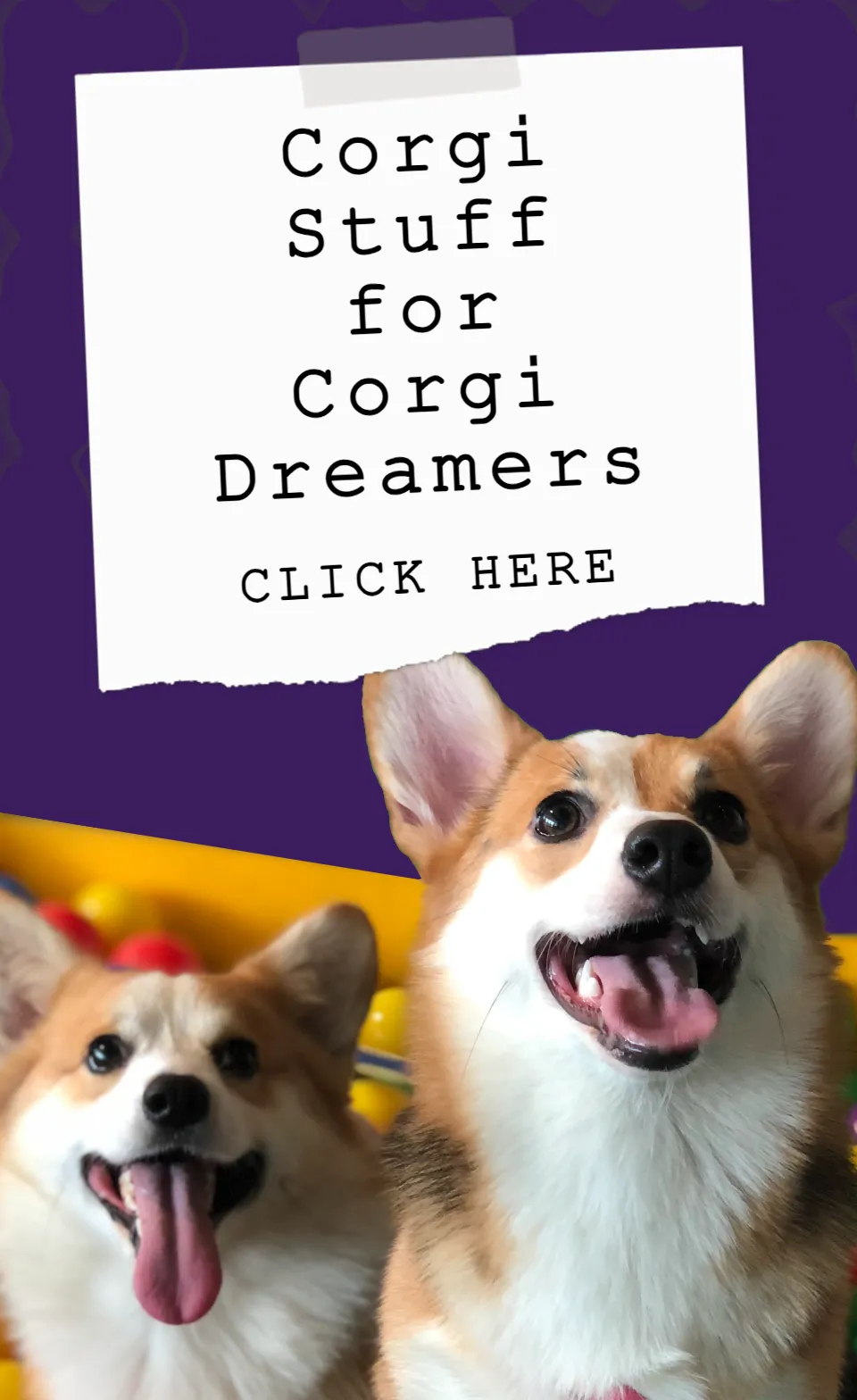The ABCs of Potty Training Your Corgi Puppy

How to Potty Train Your Corgi Puppy
Why Is Potty Training Your Corgi Puppy So Important?
Have you recently brought home an adorable Corgi puppy? If so, you're probably wondering how to potty train them quickly and effectively. Successfully house training your furry friend is one of the most important things you can do as a new pet parent. But where do you start?
Potty training allows your puppy to communicate their needs clearly and prevents messy accidents around your home. It also reinforces good behaviors and habits from a young age. Most importantly, proper potty training helps keep your pup healthy and happy.
So let's explore the ins and outs of house training your Corgi puppy. This guide will provide tips and tricks to make the process as smooth and frustration-free as possible. With a little patience and consistency, you'll be well on your way to a fully potty trained Corgi.
How Long Does It Take to Potty Train a Corgi Puppy?
Potty training a puppy takes time, consistency and patience. On average, Corgi puppies can be fully housetrained between 4-6 months old. However, every pup is different.
Some Corgi pups may only take a few weeks to grasp potty training concepts, while a more stubborn or difficult pup could take up to a year. Try not to get disheartened by setbacks or accidents along the way. This is all part of the learning process.
The most important things are to stick to a schedule, offer plenty of positive reinforcement and never punish accidents. With the right approach, your Corgi will be eliminating outside in no time.
Preparing Your Home for Potty Training Success
Before you start actively potty training your Corgi puppy, it's essential to properly prepare your home. Setting up the right environment will encourage your puppy's natural bathroom behaviors and prevent indoor accidents.
Here are some tips:
- Puppy proof rooms your Corgi will spend time in by removing rugs, covering floors, and blocking access to off-limit areas.
- Set up an enclosed play area with food, water and bedding. Use baby gates to keep your puppy contained when you can't directly supervise them.
- Designate a specific outdoor potty spot and take your pup there frequently, especially first thing in the morning, after meals, naptime, playtime, etc.
- Stock up on enzymatic cleaners to properly remove any odors and stains left by accidents.
Proper preparation goes a long way in the potty training process! It sets you and your Corgi puppy up for success.
Reading Your Puppy's Potty Signals
Understanding your Corgi puppy's potty signals is key for timely bathroom breaks and accident prevention. When first bringing home your puppy, observe their behavior closely to identify when they need to go.
Common potty signals include:
- Sniffing floors or furniture
- Circling and turning in tight spaces
- Sudden interruptions in play
- Whining or barking
- Going to the door
Puppies will also often squat when they're ready to relieve themselves. For urination, the squat will be shallow and quick. Pooping squats tend to be deeper and slower.
By recognizing these early cues, you can promptly scoop up your pup and whisk them outside to their designated potty area. This prevents accidents and reinforces that outside is the right bathroom spot.
Establishing a Consistent Potty Training Routine
Consistency is absolutely vital when house training your Corgi puppy. Following a predictable schedule will help them learn to hold it until it's time to go outside. Here are some tips for establishing a solid potty routine:
- Take your puppy out first thing in the morning, shortly after meals, after naps, and before bedtime. These are common "potty times."
- Stick to a regular feeding schedule so you can predict when your puppy will need to poop.
- Use a cue like "Go potty" when bringing your pup to their bathroom spot. Say it each time to create an association.
- Wait with your puppy for 5-10 minutes until they go, then reward with treats and praise.
- Limit water intake and no food for 2-3 hours before bed to help avoid nighttime accidents.
Remaining consistent, especially during the early stages of training, will help your puppy learn to hold it until potty time.
Accident-Proofing Your Home While Potty Training Your Corgi
Potty training your Corgi puppy involves vigilantly puppy-proofing your home to prevent indoor accidents. When starting this process, there are several key steps you can take to set up an accident-free environment.
Block Off Rooms and Areas
Start by restricting your puppy's access in your home. Block off rooms or specific areas where you don't want your Corgi to eliminate. Use baby gates or exercise pens to keep them contained in puppy-friendly zones when unsupervised.
Prioritize blocking access to rooms with carpets, rugs, and fabrics that are difficult to clean. Tiled kitchens and hardwood floors are ideal areas for puppy playtime.
You can also close doors to bedrooms, bathrooms, and other areas you don't want your Corgi wandering into. This prevents sneaky potty trips in off-limit spots.
Use Baby Gates and Exercise Pens
Baby gates and exercise pens are extremely useful tools for keeping your puppy restricted to designated zones. They allow you to divide and block parts of your home while still giving your pup room to move and play.
Use gates to section off doorways, hallways, and the tops/bottoms of stairs. Pay special attention to blocking access to areas with tempting carpets or rugs.
When you can't actively supervise your pup, place them in an exercise pen with bedding, water, and safe chew toys. This prevents surprise potty trips around the house.
Keep Your Puppy Closely Supervised
Vigilant supervision is crucial during the potty training process. When your puppy is roaming freely, keep a close eye on them at all times. Watch for circling, sniffing, or other potty signals.
If you catch them in the act of squatting inside, immediately scoop them up and take them to the appropriate bathroom spot. Then, reward and praise them for finishing there.
Close supervision sets you up to interrupt accidents and reinforce that outside is the right potty place.
Use Confinement When Unsupervised
When you can't actively supervise your puppy, confinement is key for accident prevention. Place your crated or penned Corgi in an area like the kitchen or mudroom while you're away or occupied.
Try to avoid long stretches of confinement. Take your puppy outside frequently instead, including first thing in the morning and after confinement.
With good confinement and supervision habits, you can dramatically reduce the chances of indoor potty mistakes. This gets your potty training off to the right start.
Handling Indoor Potty Training Accidents
Accidents inevitably happen during potty training. When your Corgi pup makes a mistake inside, it's important to respond calmly and appropriately. Here's how to handle indoor potty accidents:
Stay Relaxed and Positive
Should you catch your puppy in the act of pooping or peeing inside, gentle interrupt them with a calm "Ah ah!" Then, quickly scoop them up and take them to finish in the right potty place outside. Provide praise when they go in the proper spot.
Never scold, punish, or rub their nose in accidents. This only teaches fear and anxiety. Instead, respond gently and positively redirect their behavior.
Thoroughly Clean All Mess
Use an enzymatic cleaner to fully remove all odors and stains left behind by indoor accidents. Let the area soak, then rinse thoroughly. Vinegar and water works too.
Remaining smells encourage repeat accidents in the same spot. Eliminate odors properly so your puppy isn't drawn back.
Watch for Patterns After an Accident
Pay attention to see if accidents follow a pattern, like in the same area or time of day. Use this info to modify your potty training approach.
Could your puppy have been left unsupervised too long? Do they need more frequent bathroom trips? Identifying causes can prevent future accidents.
Double Down on Training After an Accident
After any indoor mistake, re-commit to your potty training regimen. Stick to your schedule, offer more supervision, reward outdoor potties, and consider confinement when you can't watch closely.
The added attention gets training back on track and reminds your puppy of the right potty protocol. Stay positive - accidents are all part of the process!
Troubleshooting Tricky Housetraining Challenges
Potty training a Corgi puppy comes with its fair share of challenges. Try these troubleshooting tips if you encounter stubbornness, setbacks, or standstills during the training process:
For a Stubborn or Resistant Puppy:
- Keep your frustration in check - remain calm and positive.
- Re-evaluate your training schedule - does it match your puppy's needs?
- Break training down into smaller steps and offer high-reward treats.
- Be more vigilant in your supervision to set your pup up for success.
For Puppies Who Won't Potty Outside:
- Ensure your chosen potty spot is easily accessible and comfortable for pup.
- Try a different surface like grass if they dislike dirt or concrete.
- Use treats to heavily reinforce when they finally go in the right place.
- Consider switching to a temporary indoor potty option like pads.
For Constant Excited Urination:
- Remain calm and unfazed when greeting your puppy.
- Take pup straight outside to potty before playtime.
- Work on impulse control and obedience training.
- Limit water before exciting events to help prevent accidents.
Don't get discouraged! With time, patience and consistency, you can overcome tricky potty training obstacles. Stay positive - your puppy will get there.
Choosing the Right Outdoor Potty Spot
An ideal outdoor bathroom area is crucial for successfully potty training your Corgi. As you begin taking your pup outside, keep these tips in mind when selecting their spot:
- Pick an easily accessible location close to your door and pup's confined zones. This allows for quick potty trips whenever needed.
- Make sure the area has either natural grass, artificial turf, or small gravel - surfaces that encourage elimination and are easy to clean.
- The space should be private and enclosed. This prevents distractions and helps your puppy focus on going potty.
- Consider convenience and aesthetics. Avoid areas where urine will bother neighbors, damage lawns, or create an eyesore.
- Provide enough space for your puppy to circle, sniff, and find the perfect spot to go comfortably.
Take your Corgi to their designated outdoor potty area first thing in the morning, after meals and naps, after playtime, and before bed to start establishing good bathroom habits. With the right spot, you'll be well on your way to outdoor potty training success!
Introducing Your Corgi Puppy to Their Potty Spot
You've chosen the perfect outdoor bathroom area. Now it's time to introduce your Corgi puppy and start training! Here are some tips for showing your pup their new spot:
- Take your puppy to the selected potty zone frequently and consistently, using a cue word like "Go potty."
- Allow them time to sniff and explore the area at first. Let them wander and become comfortable in the space.
- Reward with enthusiastic praise and treats as soon as they go potty in the right place.
- Gently interrupt and redirect if they start to go potty in the wrong spot outdoors. Then bring them back to their designated zone.
- Be patient! It may take some trial and error before they get it.
With proper introduction and positive reinforcement, your Corgi will quickly learn that this specific area is the place for going potty outside.
Using Potty Cues and Commands
Verbal cues are tremendously helpful for encouraging your Corgi puppy to potty in their designated outdoor spot. Here's how to use potty commands effectively:
- Choose a simple, consistent phrase like "Go potty" or "Do your business."
- Say the cue word cheerfully every time you take your puppy to their bathroom area.
- Use the cue before your puppy goes so they associate the phrase with going potty.
- Avoid scolding if your puppy doesn't go - just patiently take them back inside and try again later.
- Always reward successful potty trips associated with their cue word with treats, praise, or play.
Be consistent with a potty cue, and your Corgi puppy will learn to eliminate on command when brought to their special spot. This makes housetraining much easier!
Offering Rewards for Successful Outdoor Potties
You MUST reward your Corgi puppy every time they successfully go potty in their designated outdoor bathroom spot. This positive reinforcement is crucial for training. Here's how to offer proper rewards:
- Keep tasty treats accessible by the door to give as soon as your pup eliminates outside.
- Provide excited praise the moment they finish going potty - use a happy tone and enthusicam.
- Immediately reward indoor good behavior after an outdoor potty to reinforce the sequence.
- Make sure rewards are given quickly, while the desired behavior is fresh in your puppy's mind.
Choosing Indoor Potty Training Alternatives
While the end goal is having your Corgi reliably potty outdoors, sometimes it's necessary to consider temporary indoor options, especially for young pups.
Indoor potty training alternatives include:
Puppy Pee Pads
Pee pads give pups an acceptable indoor surface whenever they can’t hold it until the next outdoor trip. The pads contain an attractant that encourages puppies to use them.
Place pads in a consistent spot and take your puppy frequently. Reward them for using the pads so they learn that’s the correct indoor potty location.
Over time, move the pads closer to your door. Then transition your Corgi to only peeing and pooping outdoors.
Paper Training
Paper training involves designating a specific indoor area lined with newspaper or potty pads for your puppy to eliminate on.
Pick a space, cover with paper, and take your pup there consistently. Some owners opt to use a tray or small enclosure.
Reward all proper use of the area. As training progresses, move the lined area closer to the door before fully transitioning outside.
Litter Box
Using a litter box is another viable indoor potty training option, especially for tiny or young Corgi puppies.
Select a box with low walls and doggy litter. Place it in an easily accessible location. Take your puppy there often and reward all successful uses.
Gradually move the litter box closer to your door as accidents decrease. Eventually switch to outdoor-only potty trips.
While indoor alternatives can be extremely helpful in the short-term, be sure to transition your Corgi puppy to going potty outside only as soon as possible. Consistency, supervision, and positive reinforcement are keys to success!
Designating a Consistent Indoor Potty Spot
If you opt to use puppy pads, newspaper, or a litter box, it’s important to choose a designated indoor potty spot to avoid confusion and promote consistency. Here are some tips:
- Pick an accessible area on an easy-to-clean floor. Bathrooms and laundry rooms work well.
- Confine your Corgi pup to the area or keep them supervised when loose. This prevents sneaky potties in off-limit spots.
- Use gates, exercise pens, or crates to restrict access to the rest of the home.
- Always take your puppy to the same indoor spot and use a cue like “Go potty.”
- Offer rewards EVERY time they use the correct indoor location.
Your Corgi wants to please you. Consistency and positive reinforcement will teach them that this specific indoor potty site is the right choice.
Gradually Moving the Indoor Potty Spot Closer to Your Door
Once your Corgi puppy reliably uses their designated indoor potty area with minimal accidents elsewhere, you can begin transitioning outside.
To do this, gradually move their indoor potty closer and closer to your exterior door:
- Start by relocating the potty space a few feet closer each week.
- Restrict access so accidents only happen in the right spot. Closely supervise when loose.
- As the indoor potty nears the door, begin taking your pup outside more frequently.
- Reward all outdoor potties heavily.
- Eventually eliminate the indoor potty option altogether as outdoor training improves.
Be patient. The transition from indoor to outdoor can take weeks or months depending on your Corgi’s progression. Stick to your training, and your puppy will soon be pottying outside only!
Troubleshooting Tricky Indoor Potty Training Challenges
Indoor potty training comes with its own unique set of challenges. Try these troubleshooting tips if issues pop up along the way:
For a puppy who refuses to use the indoor potty space:
- Make sure the area is in an easy-to-access and quiet location.
- Clean accidents thoroughly with enzymatic spray. Don’t use ammonia.
- Consider a litter box instead of pads if your puppy doesn't like pads.
- Use treats and praise to reinforce proper indoor potties.
For frequent accidents outside the designated indoor spot:
- Restrict access to other rooms using gates and exercise pens.
- Frequently take your puppy to the correct indoor spot and reward successes.
- Closely supervise when loose indoors and interrupt accidents.
- Confine your puppy when you are away or not watching.
For struggle transitioning indoor to outdoor pottying:
- Gradually move the indoor space closer to your door over an extended timeframe.
- Take your puppy outside OFTEN and reward all proper potties heavily.
- Use their indoor potty cue word when bringing them outside.
- Be patient! It takes most puppies time to generalize. Keep at it.
Don’t get frustrated with indoor potty training obstacles. Consistency, confinement, supervision, and positive reinforcement are key to working through challenges. You’ve got this!
Preventing Potty Training Regression in Adult Corgis
Once your Corgi puppy is fully housetrained using the provided tips, the job isn't done! You’ll need to maintain training and prevent regression. Here are some tips:
- Stick to a consistent potty schedule, especially first thing in the morning/evening and after meals.
- Provide access to their familiar outdoor bathroom spot whenever possible.
- Keep offering praise and occasional treats for outdoor potties.
- Rule out medical causes if accidents develop suddenly. Consult your vet.
- Thoroughly clean any indoor accidents with enzymatic cleaners. Don’t punish.
- Refresh outdoor training with increased supervision and frequency.
- Consider refresher training courses or new cues if needed.
While regression can be frustrating, remain patient. Reinforcing routines, providing access outdoors, supervising closely, and never punishing accidents can get your adult Corgi back on track. They want to please you!
Answering Common Corgi Housetraining Questions
Potty training your Corgi puppy comes with lots of questions. Here are answers to some common queries:
How long does it take to fully housetrain a Corgi puppy?
Most Corgi puppies take 4-6 months for full, reliable housetraining. Some may potty train faster or slower. Just stick to it!
What mistakes should be avoided when potty training a Corgi pup?
Don't punish accidents, change routines too frequently, leave unsupervised too long, or expect perfection too quickly. Stay positive!
Are Corgis harder to potty train than other breeds?
Not necessarily. Each puppy is different regardless of breed. Use procedures like rewards, supervision, routine and patience.
Should I use puppy pads for training my Corgi?
Pads can be helpful for very young pups or when you can’t supervise fully. Transition outside ASAP.
What are signs my adult Corgi needs a potty training refresher?
Sudden indoor accidents, resisting going outside, not eliminating on schedule, or no longer signaling need to go out.
How can I manage excited urination with my Corgi?
Limit water before exciting events, remain calm in greetings, take them to potty before playtime, and work on impulse control training.
If you have any other Corgi potty training questions, there are always solutions available with the right guidance and positive reinforcement. Your furry friend will be peeing and pooping like a pro!

